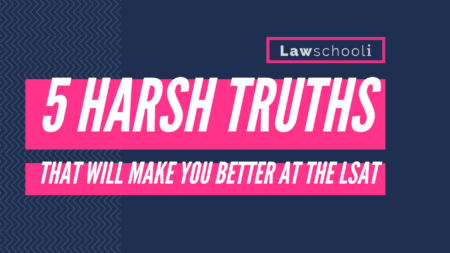If you’ve read my other posts, you know that law school is mostly a numbers game. At most schools, your GPA and LSAT alone predict where will predict where you do or don’t get in about 90% of the time! That’s huge.
Now I said most schools. At Yale and Stanford, and to a lesser extent the other top schools, factors beyond the numbers matter a lot more. Why? Well, every school wants students with good numbers — that’s a given. However, these very top law schools get a lot more applicants with the kind of numbers they want than they have space for.
Because of that, they have to look to other factors beyond the numbers to choose between these highly qualified applicants.
The recipe for getting into a T6 school is great numbers + great soft factors (including extracurriculars) = acceptance.
But what if you aren’t shooting for the very top schools? Do you need to do a lot of extracurricular activities in undergrad to get accepted?

Here is how this usually works: If you have really strong numbers for the school that you are applying to, then it probably won’t matter if you spend all your free time playing video games and beer pong. They need you and they are going to try to get you.
If, on the other hand, you are what’s called a “reach” applicant, meaning that school is a bit of a stretch with your numbers, soft factors such as extracurricular activities may make a difference. However, it’s not quite the big issue people think it’s going to be.
So for example, say you are applying Loyola Law in LA with a 3.6 GPA and a 161 LSAT. Loyola 25th and 75th percentile numbers for incoming students last year were 3.29-3.65 for GPA and 157-162 for the LSAT. With your numbers, you’re on the high end for applicants to that school. Chances nearly 100% that you get in so long as you don’t raise any major red flags. Basically, if you haven’t committed a serious crime you are good to go.
Now what if you have a 3.29 GPA and a 158 LSAT? Now getting in is a little less of a sure thing because Loyola has many more applicants with these numbers trying to get in and less of these applicants will be snapped up by higher-ranked schools.
You still have a really good shot at getting in with those numbers (especially right now because so few people are applying to law school right now) BUT, because Loyola likely has more applicants than they need with these kind of numbers, they can afford to be choosy. That means they will look at things like whether you have done extracurriculars, have a good job history, pursue other interests, etc.
So are you not going to get into your reach schools if you weren’t president of 3 or 4 different clubs or societies during undergrad? No. Firstly, they know that some people just aren’t into that kind of thing. Here’s what is more important: you should be able to show them that you are passionate about aspect of your life.
It doesn’t need to be an extracurricular activity or a sport. Do you play chess at regional tournaments? Do you write fan fiction? Are you the dominant force in several fantasy leagues? Tell them about stuff like this, even if it doesn’t seem like it would be impressive or interesting to you. It’s give them a sense of who you are and what makes you tick. It shows them that you aren’t just a slug that lies around in bed all day.
If your primary passion has been your work, then show them that. Tell them how you made all the difference in the big project as a deadline approached or what have you. Note that if work has been your big thing in the last few years, it would be good to have a recommender from your work.
The general theme is that it’s important to have some things in your life (and therefore on your resume) that show engagement with the outside world beyond your bedroom. Here is my theory as to why this matters: contrary to popular belief, lawyering isn’t the ideal profession for bookish introverts.
Social skills help greatly in the law world. Law schools know that social, outgoing people tend to do well when it comes to getting jobs and succeeding in them (side note: an oft ignored facet of being a lawyer is that you might have to be a salesperson for your firm or for yourself. If you aren’t at all comfortable with that, it may be a good idea to reevaluate whether you want to be a lawyer).
Naturally, law schools are more attracted to these kind of people, who will help them down the road by getting jobs and by giving back to the school.
Now if you happen to be a bookish introvert, don’t worry, law schools have plenty of space for you as well. However, like anyone else, you’ll be best off as well if you have some activities that you can put on your resume. What law schools probably don’t want a whole lot of is truly anti-social types (though even an antisocial person who hasn’t managed to hide it on their resume will do fine if they have great numbers).
One final word on extracurricular activities: you might think it’s best to load up on tons and tons of them in undergrad. However, admissions deans frequently say that it’s better to focus on doing a few things well rather than spread your efforts out thinly. If you are doing extracurricular activities, try to pick a couple and make a big difference in those organizations.
We hope this put your mind at ease if you were worried that you had to be class president/social chair to have a shot at law school. If you are looking for an expanded discussion of how specific soft factors might fit into your application, look here: https://lawschooli.com/what-are-law-school-admissions-soft-factors/




4 Comments
What’s your opinion on what kind of activities help boost an app after graduating? I just took my LSATs and I’ve done a year of legal assistant job after graduating. I have no set plans until I apply this October and hopefully attending law school next fall. Should I try to do something law related like another legal aid job or volunteer like Teach for America? Or neither? Thanks!
I’m looking at U Texas, do you think I need extra curriculars for UT? I know you mentioned extras for top ranked schools but I’m not sure where UT falls for extras or almost solely a numbers game type of school.
Do you have a better chance getting into a reach school if you apply Early Decision?
Yes, generally you do have a slightly better shot. The advantage over RD has probably diminished a little, but only because everyone has much better chances now given that far fewer people are applying to law school.
Here’s the thing about ED though: Unless you are using it to get into a T6 school (Harvard, Yale, Stanford, Columbia, Chicago, and NYU) then it’s usually not a good idea because you are stuck paying full price. Full price is too expensive right now at just about everywhere except those top schools unless 1. your parents are paying, or 2. you are ridiculously rich and are paying yourself.
If you or anyone else cares to ask more questions about law school cost feel free. Happy to explain why I think paying full price is too much. Suffice to say that’s the majority position these days. It’s better to go somewhere that gives you a big scholarship all else being equal.